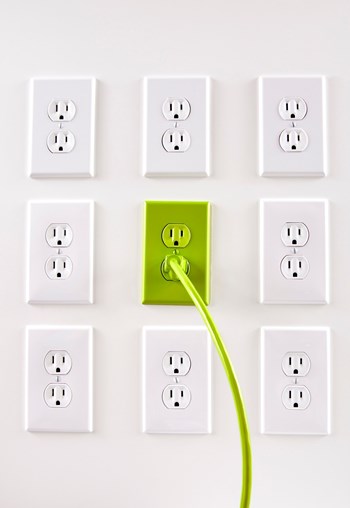
Skyrocketing energy costs have become the unfortunate norm. So it’s probably a good time to revisit a relatively obscure section of Massachusetts’ condominium statute that empowers condominium boards to become energy conservationists.
Section 6 of M.G.L. c. 183A is best known for dealing with both common expense charges and corresponding collection remedies available to condominium associations. But Section 6 also empowers condominium boards to cause energy conservation devices to be installed within the individual units that are not separately metered for water and other utilities. The non-exhaustive statutory list of energy conservation devices that a boardmay cause to be installed in such units includes separate water meters, windows, storm windows, low-flow toilets and showerheads and faucet aerators.
In the end, a condominium unit is not always the unit owner’s “castle” under Massachusetts’ condominium statute. The other owners sometimes have a legitimate interest in that which happens beyond the moat and inside the individual units. Making the individual units more environmentally-efficientis clearly one area of such interest that the Massachusetts Legislature purposely chose to single this out for special oversight.
The Legislature also carved out a special exception to the general manner in which common expense charges must be assessed under the statute when a board invokes theSection 6 energy conservation provisions. The familiar general statutory rule is that “all common expenses must be assessed against all units in accordance with their respective percentages of undivided interest….”
And even though the statute reiterates that the costs of installing energy conservation devices within units “shall be collected in the same manner as common expense assessments,” the statute prescribesan entirely different formula for assessing in-unit energy conservation costs.
Rather than requiring in-unit energy conservation costs to be assessed against all units based on their respective percentages of beneficial interest per the general rule, the statute provides that condominium associations “may assess to each unit owner the direct cost of any energy conservation device installed in a unit….” So, for example, if the actual cost of installing energy-efficient windows in one unit is $1,000 and the actual cost of installing energy-efficient windows in another unit is only $500, then the association may assess the units $1,000 and $500 respectively – even if the percentages of beneficial interestwere identical.
Finally, the importance placed upon energy conservation by the Legislature is underscored by both the appeal and enforcement remedies carved into the statute. A unit owner aggrieved by a board’s decision to assess him or her costs for mandated in-unit energy conservation measures has a right of appeal under the statute, but the appeal for an exemption must be made to the association board – the very body that made the decision in the first place. And the statute reiterates the association’s right to assess all fees, attorneys’ fees, fines, costs of collection and costs of enforcement against the unit owner– all of which are enforceable as common expense assessments under the statute.
So, the Massachusetts Legislature has clearly empowered condominium boards to become proactive energy conservationists. Condominium boards clearly have the authority to initiate common area energy conservation measures – and the statute also permits condominium boards to require a panoply of energy conservation measures within individual units where water and other utilities are not already separately metered.
The statute authorizes condominium boards to assess a unit’s direct energy conservation costs to the owner of that unit without regard to beneficial interest calculation. And the Legislature put enforcement teeth into the statute to assist boards in their in-unit energy conservation initiatives. With all of this statutory ammunition, condominium boards are well advised to take a closer look at their energy conservation options both with respect to the common areas and within individual units – especially with energy costs exploding all around us.






Leave a Comment